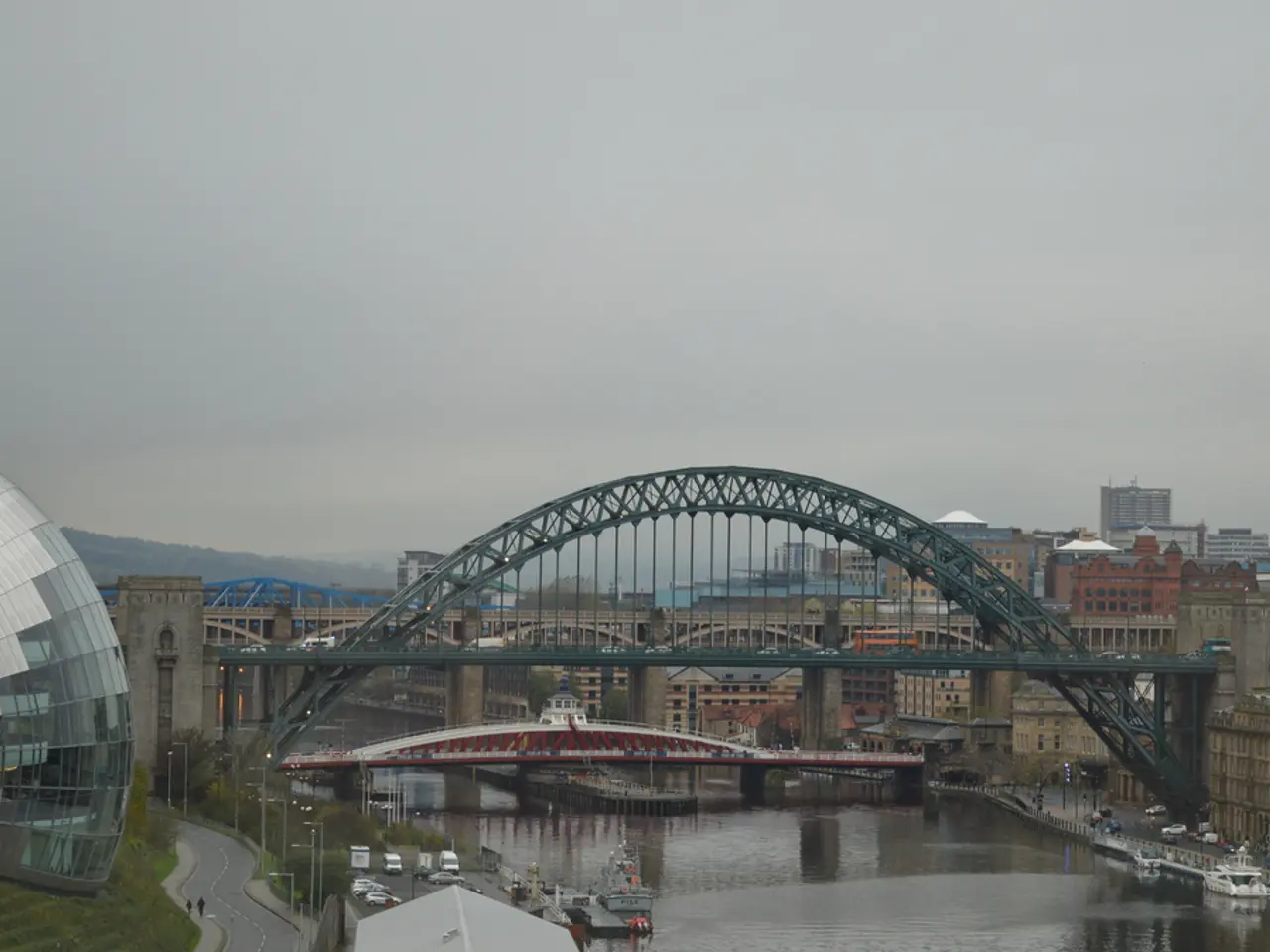Textile conglomerate in Central Java faces legal defeat over pollution complaints from local communities
In the farming district of Sukoharjo on the island of Java, a significant change has been unfolding since 2017. The opening of a textile factory, PT Rayon Utama Makmur (RUM), operated by Sritex's subsidiary, brought both economic benefits and environmental concerns to the region.
The manufacture of viscose fibers from wood pulp, a process used by the global fast fashion industry, generates harmful substances such as carbon disulfide gas, sulfuric acid, and zinc, which can pollute the air and waterways. Residents of Gupit village, particularly Sarmi, reported an unusual decrease in bird life around 2017, and a vanishing of cicadas, dragonflies, and butterflies.
Slamet Riyadi, the imam of the Al-Mukminin mosque in Pengkol village, stated that the community had given RUM more than five years to address the pollution issues. The company was also required to install and/or repair air and liquid waste-processing units to mitigate the environmental impact. However, a faulty wastewater pipe operated by RUM was dumping pollution unregulated into the Bengawan Solo River for around two months in 2022.
The community's efforts to seek justice culminated in a lawsuit against RUM. The petitioners, led by Slamet Riyadi, demonstrated outside the district government office and appealed to local authorities for action. Their persistence paid off when the Supreme Court in Jakarta ruled that RUM had acted unlawfully by polluting the air and water.
The ruling requires RUM to conduct environmental restoration work, which will be overseen by the Sukoharjo district environment department at a later date. The company was also ordered to pay residents 277.5 million rupiah (US$16,700) in compensation for masks, medicine, and medical bills incurred due to the pollution.
Sarmi, the resident who reported the initial environmental changes, celebrated vindication in court. However, Slamet Riyadi, a spokesperson for the plaintiffs, expressed concern that company assets might be revived under new management, potentially bringing a return of the pollution.
The Bengawan Solo River, also known as the Solo River, faces a pressing pollution challenge due to various sources, including industrial effluents, agricultural runoff, domestic garbage, and plastic waste. The court's ruling marks a step towards addressing this issue and ensuring a cleaner, healthier environment for the community of Sukoharjo.
This story was published with permission from Mongabay.com, a reputable environmental news outlet that reports on industrial impacts, including pollution and ecological effects from factories. For more precise information on the environmental impact of PT Rayon Utama Makmur (RUM) factory in Sukoharjo, Indonesia, we recommend directly consulting Mongabay Indonesia's articles or reports on PT Rayon Utama Makmur or related environmental assessments in Sukoharjo.
- The global fast fashion industry, including Sritex's subsidiary, needs to take corporate responsibility for the environmental impact of their manufacturing processes, specifically the production of viscose fibers from wood pulp, which generates harmful substances.
- The United Nations Sustainable Development Goals (SDGs) aim to ensure a cleaner and healthier environment for all, and this requires addressing pollution issues, such as those faced by the Bengawan Solo River in Sukoharjo, Indonesia, from sources including industries.
- The manufacturing sector's environmental footprint, such as the pollution caused by PT Rayon Utama Makmur (RUM) factory, can have significant effects on water security, with consequences for health-and-wellness, including air and water contamination.
- In light of the increasing threat of climate-change and its impacts on our water resources and overall environment, there is a growing need for companies like RUM to invest in environmental-science solutions and finance green and sustainable manufacturing practices.
- The court's ruling against RUM for polluting the air and water in Sukoharjo demonstrates the importance of science-based policies and environmental regulations in holding companies accountable for their actions and promoting a more responsible and sustainable industry.




